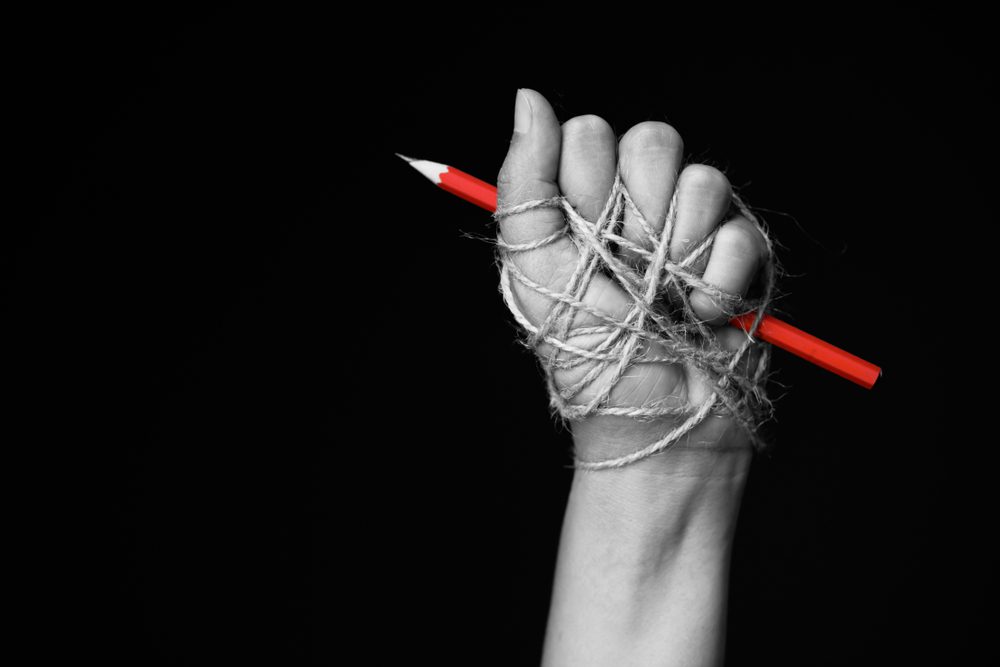
Times are precarious if one’s profession happens to be journalism. Globally, more journalists are imprisoned as a direct result of their work, and the number who are killed is also on the rise, according to Reporters Without Borders’ annual round-up.
Its latest report, published on December 14th, goes into quite some detail relating the status of the number of journalists (comprising professional and nonprofessional ones) who are being detained, held hostage, missing, or were killed between January and the start of December 2022.
All these categories are seeing an increase. In 2022, detentions rose by 13.4% to 533 cases. According to RSF (Reporters sans frontières), 65 journalists are being held hostage, 49 are missing, and the number killed (with an 18.8% increase compared to 2021 figures) has risen to 57—the latter largely due to on-the-ground reporting during the Russo-Ukraine war.
During the first six months of the war, eight journalists lost their lives—reporting from a war zone for obvious reasons comes with an inherent risk.
Some did so through unfortunate accidents, like Frédéric Leclerc-Imhoff, a French video reporter for the TV news channel BFMTV, who was killed by shrapnel from an exploding shell while covering the evacuation of civilians.
Others, like Ukrainian photojournalist Maks Levin, RSF says, were targeted deliberately. On March 13th, not even one month into the war, Levin was first tortured and then executed by Russian soldiers, one of its reports claims.
The war has placed Ukraine amongst the deadliest countries for a journalist this year, along with Mexico and Haiti, which recorded eleven and eight killings, respectively. War, organized crime, and corruption are considered the riskiest topics for reporters to cover.
The considerable uptick in the imprisonment of journalists remains particularly noteworthy. “Dictatorial and authoritarian regimes are filling their prisons faster than ever by jailing journalists,” said Christophe Deloire, secretary general of the watchdog group:
This new record for the number of detained journalists confirms the overriding and urgent need to resist these unscrupulous governments and to extend our active solidarity to all those who embody the ideal of journalistic freedom, independence and pluralism.
Concerning jailings in a bid to silence political dissidents, China, Myanmar, Iran, and Vietnam were the main offenders. On the European continent, Belarus scored highest and ranks fifth globally, as 31 journalists are currently languishing in its jails.
RSF also noted a crackdown on journalists in Russia since the onset of the war. Shortly after it began, the Kremlin introduced a new law criminalizing the spread of “false information” about the Russian army, punishable by up to 15 years in prison. Ivan Safronov, a Russian investigative journalist, received a 22-year prison sentence for having revealed “state secrets” that RSF says were readily available online–the longest sentence recorded this year.
At least 18 journalists are recorded as having been imprisoned by Russia since the war began in earnest, including eight Ukrainian journalists who were arrested on the Crimea peninsula, which was annexed by Russia in 2014.
Additionally, RSF notes that it had never before seen so many women journalists in detention. With a total of 78, a rise of 30% compared to 2021, women now account for nearly 15% of all detained journalists.
Iran alone—which has seen fierce protests since mid-September after the suspicious death of Mahsa Amini, an Iranian Kurdish woman who was arrested by its morality police for dressing inappropriately—is holding 18 women journalists.
Worldwide, just over one-third of journalists detained have actually been convicted of their ‘crimes,’ RSF goes on to note. The other two-thirds are held, sometimes for decades, without ever having stepped foot in a courtroom.
This “confirms that authoritarian regimes are becoming more comfortable with jailing the journalists who bother them, in most cases without even putting them on trial,” the watchdog group says.
